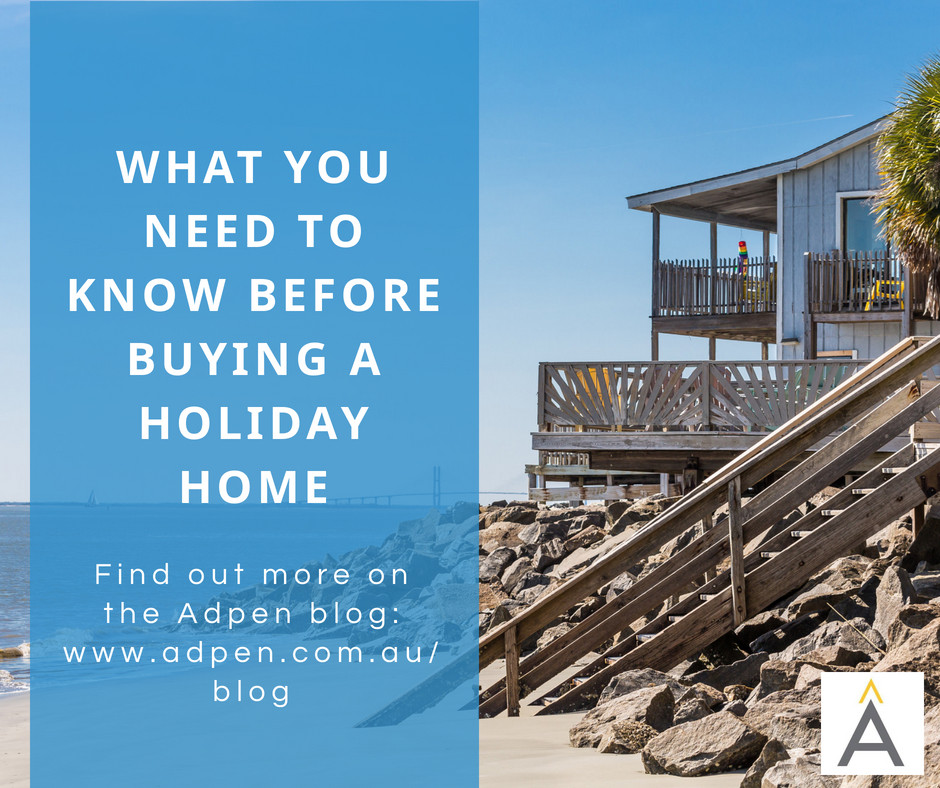Considering adding a holiday home to your property portfolio?
You’re not alone! It’s easy to be tempted by the combo of rental income and easy future holidays.
But before you jump into buying a holiday home, let’s take a look at some of the things you need to consider before investing in a holiday home…
Location, Location, Location
When selecting holiday investment properties, it’s important to choose a prime location with loads of amenity.
Buying a property near restaurants, cafes, shopping centres and tourist hotspots means you are more likely to benefit from high occupancy rates. You also reduce the risk of fluctuating occupancy rates between holiday periods.
How Rental Returns Work
Rental returns can fluctuate widely for holiday homes.
In many coastal spots, the average period of strong demand for holiday homes is 8 to 10 weeks a year, with demand plummeting during the colder months.
Demand is more consistent for holiday properties in warmer locations, but only for prime properties. Proximity to the beach and views make a big difference when it comes to success with holiday letting. If you buy a property further back from the beach, maybe consider a permanent tenant rather than holiday letting.
Get In Touch With The Professionals
If you are buying an apartment, it’s important to have an experienced and professional management team looking after your property. This could make the difference between an empty holiday home and an occupied holiday home.
Running The Numbers
Rental returns are usually much higher for holiday properties and increase even more in holiday season.
While this may look holiday properties look great, you need to allow for longer vacancy periods and fluctuating occupancy levels.
This coupled with higher body corporate and management fees means your holding costs may be higher than you initially estimated.
Your budget needs to reflect this, as well as account for unexpected maintenance costs. The more prepared you are, the more money you will make from the property.
Volatility
Property values for homes in holiday locations tend to be volatile. They boom in the good times and crash in the poor times.
During recessions and property slumps, holiday homes are typically one of the first things owners will consider selling if they are struggling financially. If you’re worried about your finances, a holiday home may not be the best investment.
Paying The Taxman
Any income you make from your holiday home must be declared in your tax return.
If you use the property for your own purposes for part of the year, but then decide to use it as an investment property, you will need to convince the Tax Office that the property is a genuine investment.
While you should be able to claim deductions for any times you rent out the holiday home, these must be proportion according to the time it was rented out and the time used for your own personal use.
Unless the holiday home is your main residence, you will most likely have to pay capital gains tax when you sell it or transfer it into someone else’s name.
There are many things that you need to consider when it comes to tax and your holiday home investment. Seek advice from your financial advisor before investing.
Still Here?
If you’ve read this blog post and are interested in knowing more about buying a holiday home, chat to the team at Adpen. Our experienced team have a wealth of experience in property investment and helping investors find the best property for them.


